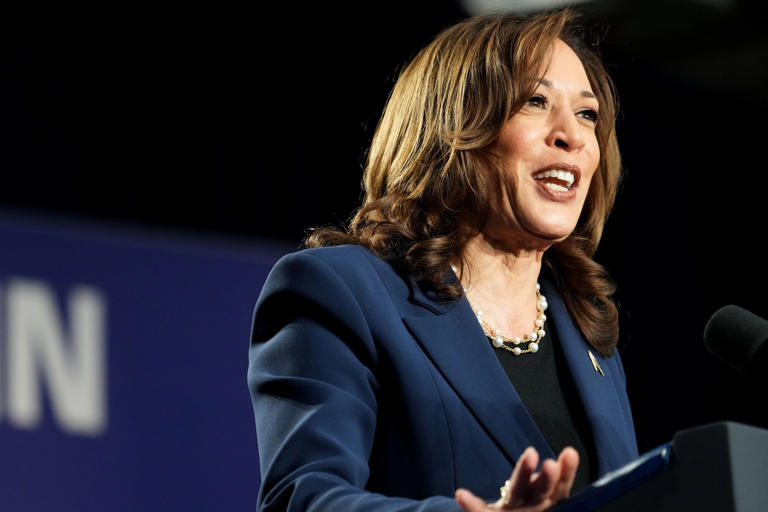Democrats are making concerted efforts to project Vice President Kamala Harris’s foreign policy acumen, seeking to counter Republican criticisms and reassure voters of her capabilities in managing global challenges.
This comes ahead of Harris’s critical diplomatic engagement with Israeli Prime Minister Benjamin Netanyahu, a significant test of her foreign policy credentials.
Secretary of State Antony Blinken lauded Harris as a “leading voice” in high-stakes discussions, emphasizing her probing questions during Situation Room deliberations.
In a show of support, former senior officials released a letter asserting Harris’s readiness to lead without “on-the-job training.” “Over the past three and a half years, Vice President Harris has played an integral role in restoring US global leadership around the world,” the letter stated.
The upcoming meeting with Netanyahu could provide insights into whether Harris will align closely with President Joe Biden’s policies or carve out her own distinct approach. Although Harris has been more critical of Israel than Biden, her stance on key issues remains largely consistent with the administration’s policies.
Biden’s presidency has seen divisive responses to his handling of the Gaza conflict, with voters expressing dissatisfaction over his policies. According to a Bloomberg News-Morning Consult poll, voters in key swing states trust former President Donald Trump more than Biden on foreign policy matters, including China, Ukraine, and Israel.
“Before Biden stepped aside, it looked to me like Trump had an advantage in voter perception of effectiveness dealing with global challenges,” noted Stephen Wertheim, a senior fellow at the Carnegie Endowment for International Peace. “Harris could benefit from having some space to show independence of mind on foreign policy.”
During her tenure, Harris has engaged with global leaders, addressing the “root causes” of migration in Central America, and making diplomatic trips to Singapore and Vietnam. She has also hosted Mexican President Andres Manuel Lopez Obrador and represented the administration at the Munich Security Conference.
These engagements highlight Harris’s broader experience with global diplomacy compared to recent vice-presidential predecessors. However, Biden’s extensive foreign policy background, formed over decades, positions him as the primary strategist, with National Security Adviser Jake Sullivan and Blinken providing crucial counsel.
Harris’s preparation for diplomatic meetings is meticulous, often seeking input from advisors on key objectives and encouraging dissenting views to ensure comprehensive strategies.
While her career experiences differ significantly from Biden’s, this divergence could influence her perspectives on global issues. Republican critics portray Harris as a radical leftist, criticizing her record on border security and immigration. Nonetheless, her political career and previous presidential run suggest her alignment with mainstream Democratic views on major international issues.
Harris’s rhetoric on Israel, particularly regarding Gaza, has been more critical than Biden’s. She has condemned civilian casualties and extremist violence in the West Bank, calling for a ceasefire to facilitate a hostage deal during a speech in Selma, Alabama. “Only time will tell with respect to exactly the voice that Vice President Harris brings to the campaign trail,” stated Senator Chris Van Hollen, highlighting her concern for the humanitarian crisis in Gaza.



